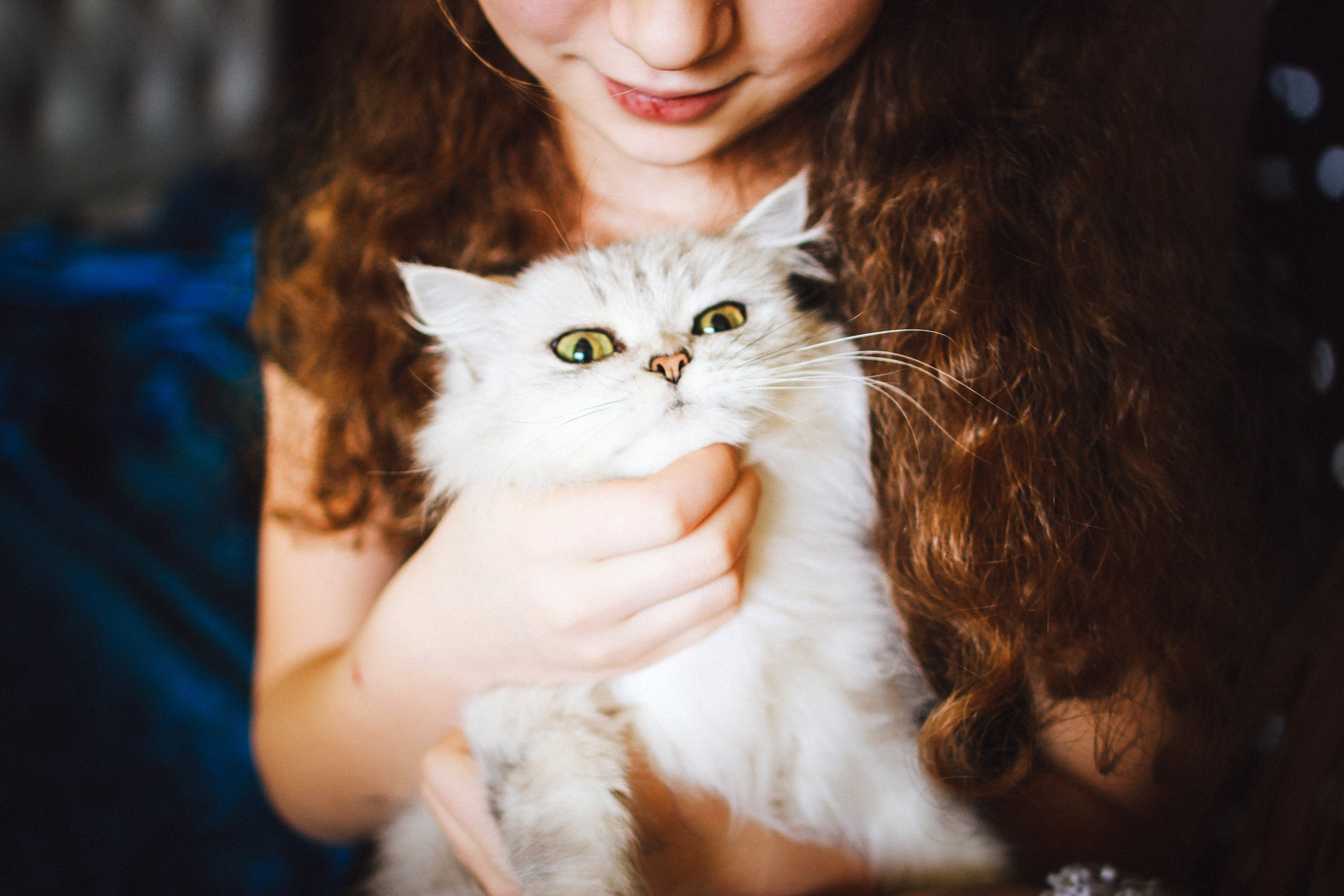Providing Great Care For Your Senior Cat
Older cats have special health needs and may require more attention and care than younger kitties. The aging process varies between species. For example, if you own a senior dog, your cat may not be considered a senior, even if they are the same age. You should consider your cat a senior around 10 years of age. As your cat ages, changes occur in his physical condition that warrant more frequent visits to the veterinarian. If medical problems are recognized and treated when they are first detected, the treatment may be easier for your cat and less costly for you. Twice-a-year wellness examinations are recommended in order to diagnose medical problems during the early stages.
A geriatric exam is more extensive than a simple check-up and includes a complete physical exam, oral and rectal examinations and a recording of body weight and body condition. The veterinarian will also examine your cat's ears, eyes and various internal organs. Some laboratory work may be done, including a complete blood count, urinalysis, fecal exam and perhaps endocrine blood tests and other complementary examinations. Establishing a base line is an added benefit and can ultimately help, should there be any changes, even small ones, to your cat's health.
As cats grow older, their organs may become less efficient and they may be less resistant to infections and other diseases. As a responsible cat owner, you want your cat to remain healthy and active for as long as possible. It is important to be aware of any condition that may warrant our attention.

Simple Tips for Caring for Your Aging Cat
Diet - Cats are carnivores, and even older cats still need plenty of protein. In fact, sometimes they need more protein as the digestive organs become less efficient
Joints - As your cat ages, joint pain and stiffness may develop. This may mean that your cat becomes less active and his or her energy level may decrease. Your cat may become tired more easily and want to nap more often. Muscle tone tends to reduce, which may further reduce your cat's ability to run, jump and climb. This decrease in muscle tone and exercise also contributes to the stiffening of joints.
Senses - Hearing, sight and smell can all become less acute with age and you may need to make allowances for these changes. Watch these changes. Unfortunately, hearing aids and contact lenses still have yet to be fit for cats. Be cognizant of indications of impaired sight, such as bumping into furniture, or loss of hearing, such as if your cat stops reacting to its name or familiar sounds. Eye infections, cataracts, decreased night vision, or even blindness is common; however, these can also be symptoms of a larger problem.
Dental - Older cats are more likely to develop tooth and gum conditions. If your cat has sore gums or loose teeth, he or she may be reluctant to eat, or it may cause food to drop out of his or her mouth. Gum disease not only leads to loss of teeth, but can also cause heart and kidney infections if bacteria enter the bloodstream through inflamed gums. Examine your cat's mouth regularly and ask us for advice if the teeth or gums do not look healthy.
Urinary - Urinary incontinence or inappropriate urination is common in an aging cat. Inappropriate urination may also be the result of a urinary tract disorder, kidney problem or symptomatic of a larger problem. Changes to your cat's litter or litter box location may also trigger urinary issues. Consult our veterinary staff if your cat suddenly becomes incontinent or begins to urinate more frequently.
Behavior - As your cat ages, his or her behavior may change significantly. You might interpret this as simple aging, but it actually might be due to a treatable geriatric disease like cognitive dysfunction. Some typical signs include confusion, disorientation, decreased activity, changes in the sleep/wake cycle, loss of litter box training, or signs which suggest a decrease in your cat's interest in, or ability to interact with, his or her environment or with you.
Kidneys - Excessive thirst and frequent or uncontrolled urination are often signs of kidney problems or diabetes. Since the kidneys process and eliminate waste products into the urine, it is important that these organs remain healthy. Ask your veterinarian about available treatments, such as those provided by holistic and traditional medicine, for slowing down kidney failure and making your cat feel good.
Coat - As cats get older, their temperature sensitivity increases because their coats are often poor and not as resistant to temperature changes. Tolerance of cold temperatures and wet conditions decreases, and the need for a dry, draft-free, sleeping area is a priority. If your cat does go outside, do not leave him or her outside for long periods of time in cold or wet weather. In hot and humid weather, use air conditioning and/or fans to help keep your cat cool.
Grooming - Provide regular grooming. This helps to remove dead hair and prevent hair balls that may cause vomiting or intestinal impaction. Grooming also gives you a chance to inspect your cat for parasites, skin disorders and unusual lumps or lesions that may require our attention. Besides the health benefits, many older cats enjoy the extra physical contact.
Even if your cat seems perfectly healthy, regular geriatric check-ups are important to manage many of the changes associated with aging. Cats over nine years of age should have a veterinary examination twice a year. A complete geriatric health maintenance program can provide a means to target age-related health problems, institute preventive health care measures, and detect any disorders early enough to provide appropriate medical treatment.





